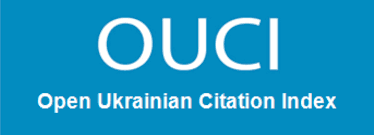Download full text in PDF
Sheptukha OA, Masiuk DM. Biochemical blood parameters of piglets under the influence of an isotonic protein solution. Bìol Tvarin. 2025; 27 (3): 77–84. DOI: 10.15407/animbiol27.03.077.
https://doi.org/10.15407/animbiol27.03.077
Received 25.06.2025 ▪ Revision 02.08.2025 ▪ Accepted 20.08.2025 ▪ Published online 22.10.2025
Biochemical blood parameters of piglets under the influence of an isotonic protein solution
O. A. Sheptukha, D. M. Masiuk
This email address is being protected from spambots. You need JavaScript enabled to view it.
Dnipro State Agrarian and Economic University, 25 Serhiia Yefremova str., Dnipro, 49027, Ukraine
The aim of this study was to investigate the effect of administering an isotonic protein solution (IPS) during the weaning period on blood biochemical parameters of piglets. The study was conducted on early postnatal piglets divided into control and experimental groups. Blood samples were collected at 9, 21, and 35 days of age to assess key metabolites and enzyme activity. In control piglets marked metabolic shift occurred post-weaning. Total protein increased to 55.7±3.6 g/L but decreased by 17.2% (P<0.05) post-weaning to 46.1±4.7 g/L. Albumin levels rose by 20.4% (P<0.05), followed by a non-significant drop of 5.1% (P>0.05). Globulin concentrations decreased by 6.6% by day 21 (P>0.05) and further declined by 28.8% after weaning (P<0.001). Blood urea levels rose by 55.4% (P<0.05) by day 21, indicating intensified protein catabolism, but remained elevated by only 8.6% post-weaning (P>0.05). Liver enzymes ALT and AST decreased by 19.2% (P>0.05) and 33.5% (P<0.05), respectively, by day 21, but increased by 35.3% (ALT) and 8.8% (AST) after weaning. Carbohydrate metabolism was also affected: glucose levels decreased by 11.7% (P>0.05) by day 21 and by an additional 25.3% (P<0.05) post-weaning. In the experimental group metabolic stability was greater than in the control. Total protein increased by 19.3% (P<0.05) by day 21 and decreased by only 12.0% (P<0.05) post-weaning, remaining above control levels. Albumin increased by 22.0% (P<0.05) and remained 5.8% higher than control after weaning (P>0.05). Globulin levels initially decreased by 12.8% (P > 0.05) by day 9, but increased by 16.9% by day 21 (P<0.05) and remained 25.6% higher post-weaning (P<0.05). Urea levels increased by 19.4% (P>0.05) by day 21, then decreased by 11.6% post-weaning (P<0.05), suggesting more efficient protein utilization. ALT remained stable, while AST increased by only 6.4%, reflecting better hepatic adaptation. Carbohydrate metabolism was also more stable: glucose increased by 3.8% (P>0.05) by day 21 and was 11.3% higher post-weaning compared to the control. Thus, administration of IPS contributes to stabilization of protein and energy metabolism, reduces post-weaning stress responses, and improves the overall metabolic status of piglets.
Key words: piglets, metabolism, isotonic protein solution, weaning
- Buzoianu SG, Firth AM. 49 (P4-1). Distribution of pre-weaning mortality in 20 920 pigs and effectiveness of an isotonic protein drink intervention. Animal Sci Proc. 2023; 14 (6): 769–770. DOI: 1016/j.anscip.2023.08.050.
- Buzoianu SG, Firth AM, Putrino C, Vannucci F. Early-life intake of an isotonic protein drink improves the gut microbial profile of piglets. Animals. 2020; 10 (5): 879. DOI: 3390/ani10050879.
- Clarke NJ, Tomlinson AJ, Schomburg G, Naylor S. Capillary isoelectric focusing of physiologically derived proteins with on-line desalting of isotonic salt concentrations. Analyt Chem. 1997; 69 (14): 2786–2792. DOI: 1021/ac961283.
- Cortyl M. Positive effects of an isotonic protein drink on gut health & performance. Int Pig Topics. 2009; 35 (2): 13–15. Available at: https://www.pig333.com/users/?accio=publicacio_descarregar&id=4384
- Dinesh OC, Kankayaliyan T, Rademacher M, Tomlinson C, Bertolo RF, Brunton JA. Neonatal piglets can synthesize adequate creatine, but only with sufficient dietary arginine and methionine, or with guanidinoacetate and excess methionine. J Nutr. 2021; 151 (3): 531–539. DOI: 1093/jn/nxaa369.
- Firth A, Cano G, Alujas AM. Effect of gruel and Tonisity Px™ on feed intake and weight gain at weaning. Proc 48th AASV Annu Meeting. Denver, CO, USA. 2017: 25–28. Available at: https://www.tonisity.com/wp-content/uploads/2022/05/Growth-Gut-health-Effect-of-gruel-and-Tonisity-Px-on-feed-intake-and-weight-gain-at-weaning.pdf
- Firth A, Martín R, Cano G, Alujas AM. Effect of Tonisity Px™ administration on pre-weaning mortality and weight gain. Proc 48th AASV Annu Meeting. Denver, CO, USA. 2017: 131–133. Available at: https://www.tonisity.com/wp-content/uploads/2022/05/Mortality-Growth-Effect-of-Tonisity-Px-administration-on-pre-weaning-mortality-and-weight-gain.pdf
- Foster KJ, Alberti KG, Karran SJ. The protein-sparing effect of isotonic amino acids: Metabolic considerations. In: Johnston IDA (ed). Advances in Parenteral Nutrition: Proc Int Symp Bermuda, 16–19th May, 1977. Springer, Dordrecht, 1978: 141–161. DOI: 1007/978-94-011-7188-5_9.
- Goodarzi P, Habibi M, Roberts K, Sutton J, Shili CN, Lin D, Pezeshki A. Dietary tryptophan supplementation alters fat and glucose metabolism in a low-birthweight piglet model. Nutrients. 2021; 13 (8): 2561. DOI: 3390/nu13082561.
- Gresse R, Chaucheyras-Durand F, Fleury MA, Van de WieleT, Forano E, Blanquet-Diot S. Gut microbiota dysbiosis in postweaning piglets: Understanding the keys to health. Trends Microbiol. 2017; 25 (10): 851–873. DOI: 1016/j.tim.2017.05.004.
- Heath ME, Ingram DL. Metabolism of young pigs reared in a hot or cold environment on various energy intakes. J Thermal Biol. 1981; 6 (1): 19–22. DOI: 1016/0306-4565(81)90037-1.
- Jumaa M, Müller BW. In vitro investigation of the effect of various isotonic substances in parenteral emulsions on human erythrocytes. Eur J Pharmaceut Sci. 1999; 9 (2): 207–212. DOI: 1016/S0928-0987(99)00059-7.
- Kobek-Kjeldager C, Vodolazs’ka D, Lauridsen C, Canibe N, Pedersen LJ. Impact of supplemental liquid feed pre-weaning and piglet weaning age on feed intake post-weaning. Livest Sci. 2021; 252: 104680. DOI: 1016/j.livsci.2021.104680.
- Lautrou M, Narcy A, Dourmad JY, Pomar C, Schmidely P, Létourneau Montminy MP. Dietary phosphorus and calcium utilization in growing pigs: Requirements and improvements. Front Vet Sci. 2021; 8: 2021. DOI: 3389/fvets.2021.734365.
- Makris K, Mousa C, Cavalier E. Alkaline phosphatases: Biochemistry, functions, and measurement. Calc Tiss Int. 2023; 112 (2): 233–242. DOI: 1007/s00223-022-01048-x.
- Masiuk DM, Kokariev AV, Bal R, Nedzvetsky VS. The isotonic protein mixture suppresses Porcine Epidemic Diarrhea Virus excretion and initiates intestinal defensive response. Theor Appl Vet Med. 2022; 10 (2): 23–28. DOI: 32819/2022.10009.
- Masiuk DM., Kokariev AV, Buzoianu SG, Firth AM, Nedzvetsky VS. An isotonic protein solution favorably modulated the porcine intestinal immune response and cellular adhesion markers and reduced PEDV shedding in vivo. Vet Immunol Immunopathol. 2024; 271: 110753. DOI: 1016/j.vetimm.2024.110753.
- Ndrepepa G. Aspartate aminotransferase and cardiovascular disease — a narrative review. J Lab Precis Med. 2021; 6: 6. DOI: 21037/jlpm-20-93.
- Tang X, Xiong K, Fang R, Li M. Weaning stress and intestinal health of piglets: A review. Front Immunol. 2022; 13: 1042778. DOI: 3389/fimmu.2022.1042778.
- Vötterl JC, Klinsoda J, Hennig-Pauka I, Verhovsek D, Metzler-Zebeli BU. Evaluation of serum parameters to predict the dietary intake of calcium and available phosphorus in growing pigs. Transl Anim Sci. 2021; 5 (2): txab059. DOI: 1093/tas/txab059.
- Wang J, Xiao Y, Li J, Qi M, Tan B. Serum biochemical parameters and amino acids metabolism are altered in piglets by early-weaning and proline and putrescine supplementations. Anim Nutr. 2021; 7 (2): 334–345. DOI: 1016/j.aninu.2020.11.007.
- Wang P, Zhang J, Tian Y, Yu B, He J, Yu J, Zheng P. Weaning stress aggravates defense response and the burden of protein metabolism in low-birth-weight piglets. 2025, 15 (10): 1369. DOI: 10.3390/ani15101369.
- Yu C, Wang D, Shen C, Luo Z, Zhang H, Zhang J, Xu W, Xu J. Remodeling of hepatic glucose metabolism in response to early weaning in piglets. Animals. 2024; 14 (2): 190. DOI: 3390/ani14020190.
- Zaitsev SY, Belous AA, Voronina OA, Rykov RA, Bogolyubova NV. Correlations between antioxidant and biochemical parameters of blood serum of Duroc breed pigs. Animals. 2021; 11 (8): 2400. DOI: 3390/ani11082400.
- Zhang S, Yu B, Liu Q, Zhang Y, Zhu M, Shi L, Chen H. Assessment of hematologic and biochemical parameters for healthy commercial pigs in China. Animals. 2022; 12 (18): 2464. DOI: 3390/ani12182464.














